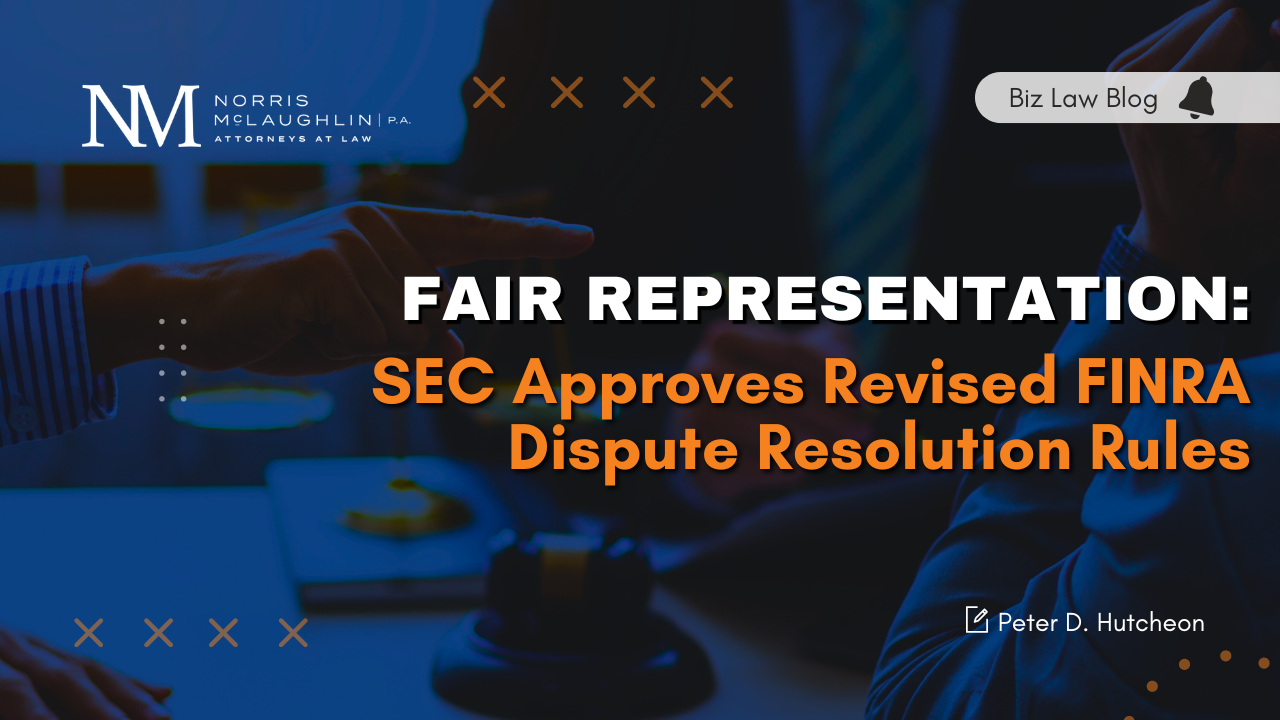To B or Not to B? How B-Corporation Status Can Work for You
About two years ago, we posted a short series of articles discussing New Jersey’s "Benefit Corporation" statute (N.J.S.A. 14A:18-1, et. seq.). See PART I and PART II. Although it was enacted in 2011, we still have not seen much interest in Benefit Corporations (or "B‑corps"), particularly in New Jersey. We think this is a much overlooked and underutilized statute that can provide substantial benefit to New Jersey companies of any size and in any industry.
Thirty-four states have now enacted some form of benefit corporation statute, with a handful more working on similar bills. These laws allow corporations to consider their environmental and social impact in conjunction with (not as a replacement for) profitability. As a result, boards of directors of B-corps enjoy greater flexibility in crafting policy and making decisions for their companies.
So, when does it make sense to form your start-up as a B-corp or convert your existing company to a B-corp? Most start-ups like to talk about how their product or service will improve the world. If true, why not include these lofty goals in the company’s legal charter? This will let the world know that you are legally committed to your stated purpose. If your existing company already pursues environmentally or socially friendly policies or participates in philanthropic endeavors, you should also consider a B‑corp conversion. B-corp status does not impact a company’s tax designation (C‑corp or S‑corp), nor does it require substantially different action by a company that already strives to do good in its community.
There are two main benefits of adopting a B-corp status. First, as already noted, it gives the directors and officers of the company greater flexibility in policy and decision making. Second, it tells the world (including potential clients and customers) that the company cares about more than its shareholder, as well as itself and its bottom line. Adopting B-corp status could open additional doors through collaborative marketing (subject to intellectual property and antitrust concerns) with other B-corps, an improved image in the community, and special incentives that may be available to B‑corps. Furthermore, some states' B-corp statutes allow the company to use the designator "PBC," "Public Benefit Corporation," or a similar designation in the formal name of the company, further highlighting the company's positive mission to the public.
There is no limit to the type of product or service offered by a B-corp. Current B-corps include everything from tech and cosmetics companies to apparel and food manufacturers and everything in between. The key component is the company’s desire to create a public benefit.
For more information about the legal mechanics of the New Jersey B-corp, see "Introduction to US Benefit Corporations."
To learn more about forming or converting to a B-corp, please contact one of our Business Attorneys.



